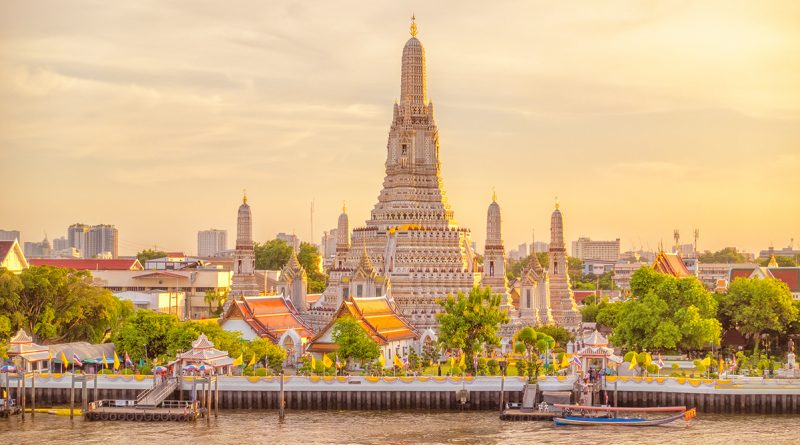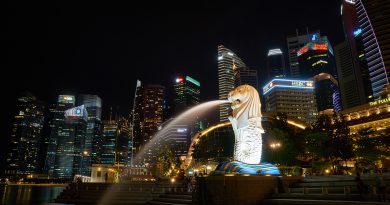Maybe Thailand’s Not The Next Amsterdam. But Why?
It’s simple to see how Thailand’s recent legalization of cannabis would benefit weed advocates. Not to mention the excitement of marijuana enthusiasts and businessmen alike. However, there is no reason to think that the appropriately titled “Land of Smiles” will quickly become the cannabis capital of Southeast Asia. So, now we’ll discuss the pros, cons, and technicalities of Thailand’s legalization of the cannabis trade.
What are the new cannabis laws in Thailand?
The Thai Food and Drug Administration decided on June 9 to officially remove cannabis in all its variations from the Category 5 narcotics list. This makes Thailand the first nation in Asia to decriminalize marijuana. So, now using cannabis for industrial, medical, and even some recreational use is legal. Besides, the move effectively makes the importing and exportation of cannabis legal throughout the nation. Other such activities include its manufacturing, distribution, possession, and consumption. After registering with the Thai government through a phone app, citizens are now also eligible to grow cannabis at home for personal use. On the other hand, commercial growers will need to go through a more involved application process for licenses and permits.
The legalization of medical marijuana took place in 2018 and the decriminalization of recreational use in several provinces in January of this year. Both Asian activists and consumers have hailed the full legalization of cannabis as a major triumph. Meanwhile, time will tell if Public Health Minister Anutin Charnvirakul will keep his May 2018 commitment. The promise says that the Thai government would provide citizens with 1 million cannabis seedlings after its legalization.
Everything seems to be in order on paper. However, there are many limitations and murky areas that will continue to have an impact on the Thai cannabis market. The scenario will be like this at least until existing laws and regulations fully develop.
Thailand’s economy comes first
The legalization of cannabis for medical, industrial, and (limited) recreational use is undoubtedly a positive step. However, local advocates contend that it is more of a plan to stimulate the economy than an expression of personal freedom. Health Minister Charnvirakul expressed his hope in an interview with CNN that the decision would “help to boost the country’s ailing economy. The government especially wants to boost its agricultural sector. It has been hard hit by rising fertilizer costs amid disruptions in the global supply chain.”
Moreover, Charnvirakul highlighted that “we emphasized using cannabis extractions and raw materials for medical purposes and for health.” He continued, “There has never even been a moment that we would think about advising individuals to use cannabis for recreational purposes.” Or they suggest using it in a way that could offend others.
Restaurants and coffee shops with valid licenses can now offer infused goods that customers are free to consume on the premises. However, it should contain no more than a 0.2 percent concentration of tetrahydrocannabinol (THC). Other forms of THC are not specifically mentioned in the legislation currently in effect. For example, a delta-8 flower or isolate.
The cannabis trade is beneficial, but recreational use is not
Marijuana and other cannabis strains are now effectively legal in Thailand. However, non-medical use is still actively frowned upon by the government. Such activities include recreational smoking, vaping, or dabbing. In fact, local authorities have issued warnings against public consumption to both locals and visitors. For example, it is now illegal to smoke marijuana outside and violators risk up to $700 in fines or perhaps arrest and a minimum three-month jail sentence. These regulations stand in stark contrast to the nation’s policy on smoking, which has no sanctions for “non-productive” use.
Despite these apparent prohibitions, the Thai government appears to be optimistic that legalizing the cannabis trade will boost the country’s agriculture and tourism sectors. Moreover, it’ll propel earnings in those sectors and adjacent industries into high gear. InnDica co-founder Monique Jackson-Fitzgerald said there would be “training and educational courses available to local citizens for transitioning to commercial cultivation and other business options” in an interview with the Washington Post. She said that the Thai government “welcomes persons” who “investigate cannabis for its medical advantages or explore the business potential.”
Is this a sign of the legalization of cannabis in Asia?
Advocates have different opinions on legalizing marijuana in Thailand. They don’t agree on whether it is a positive development or merely a planned effort to revive the country’s agriculture industry. Given that the Hong Kong government has moved in the opposite direction. It has announced its intention to criminalize the sale of even non-psychoactive cannabis compounds in the coming months. Meanwhile, possession, importation, and export will also come under it. For example, cannabidiol (i.e. CBD) in the coming months. We can’t consider it a leading indicator of cannabis sentiment across Asia.
So, will Thailand become like Amsterdam in the future? Only time will tell. Also, cannabis tourists should reconsider going to The Land of Smiles just for fun at this time. These people usually don’t have the time or money to grow their own cannabis or start a business in the nation. So, they can benefit from this move the most.




